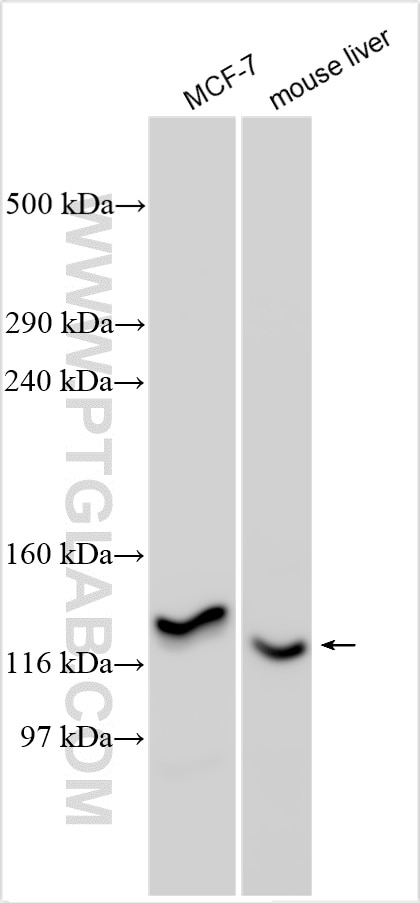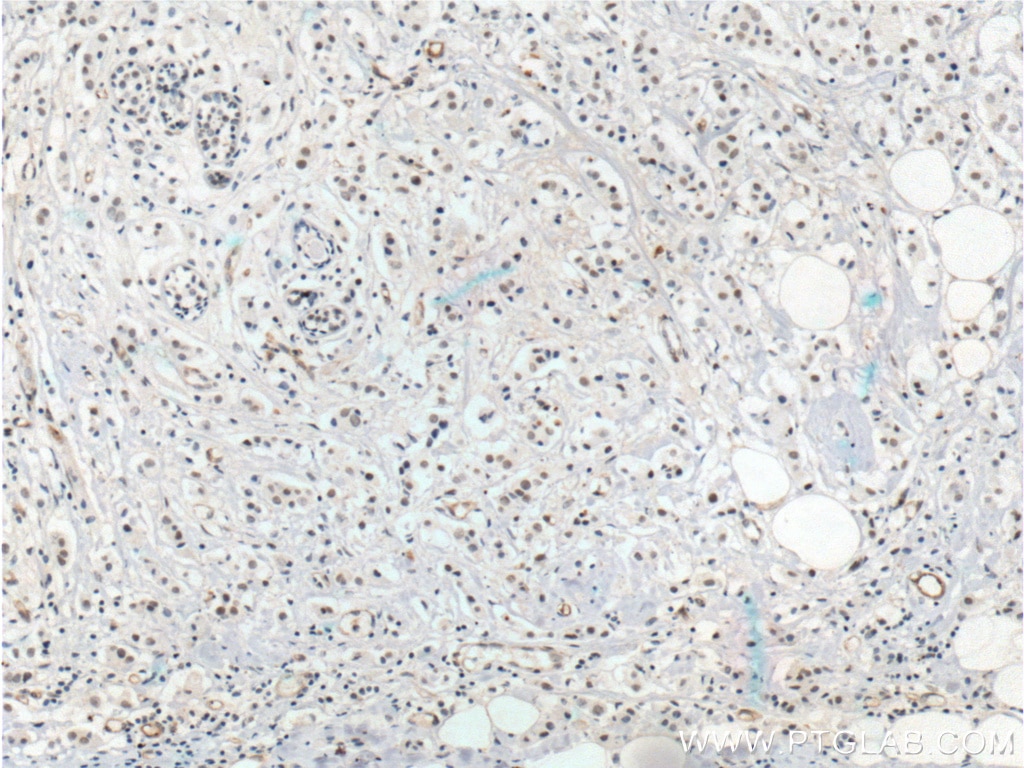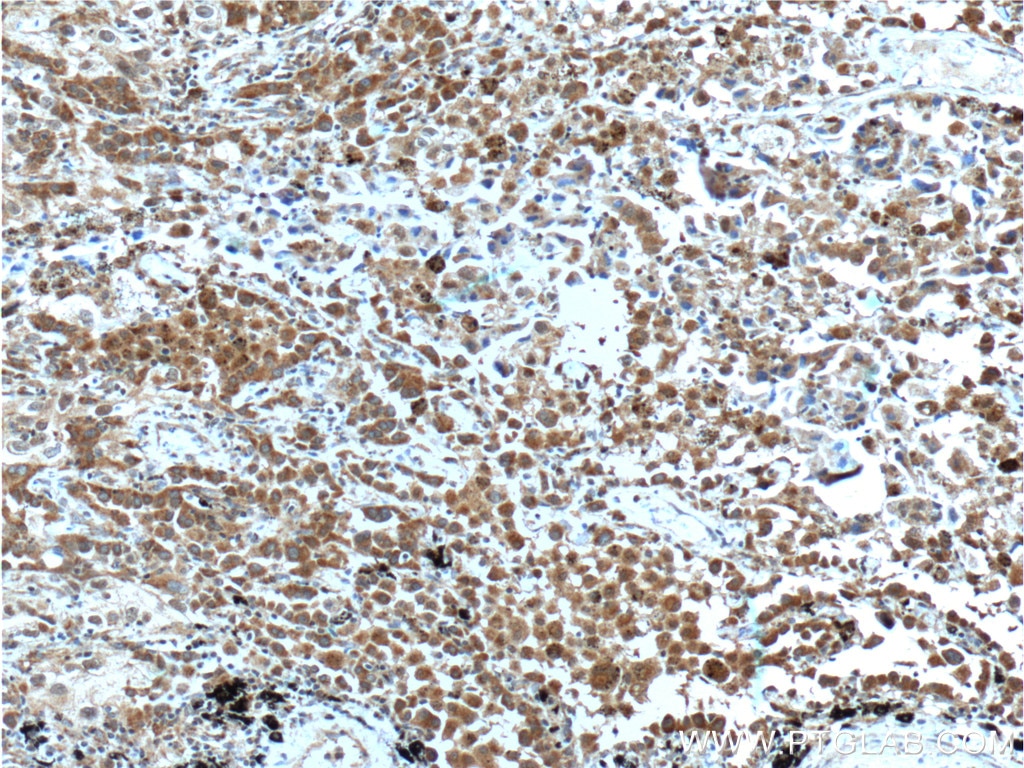Validation Data Gallery
Tested Applications
Recommended dilution
| Application | Dilution |
|---|---|
| It is recommended that this reagent should be titrated in each testing system to obtain optimal results. | |
Product Information
22899-1-PBS targets LMTK3 in WB, IHC, Indirect ELISA applications and shows reactivity with human samples.
| Tested Reactivity | human |
| Host / Isotype | Rabbit / IgG |
| Class | Polyclonal |
| Type | Antibody |
| Immunogen | Peptide 相同性解析による交差性が予測される生物種 |
| Full Name | lemur tyrosine kinase 3 |
| Calculated molecular weight | 154 kDa |
| Observed molecular weight | ~155 kDa |
| GenBank accession number | NM_001080434 |
| Gene Symbol | LMTK3 |
| Gene ID (NCBI) | 114783 |
| Conjugate | Unconjugated |
| Form | Liquid |
| Purification Method | Antigen Affinity purified |
| UNIPROT ID | Q96Q04 |
| Storage Buffer | PBS only{{ptg:BufferTemp}}7.3 |
| Storage Conditions | Store at -80°C. |
Background Information
LMTK3 is enriched at a perinuclear structure around Golgi membranes, it is present as a dotted pattern throughout neurites, and localized at neuronal synapses. It is also expected to be expressed in brain and duodenum. LMTK3 is a serine/threonine protein kinase expressed predominantly in brain. LMTK3 regulated ER-alpha stability and activity directly at the mRNA level via downregulation of PKC catalytic activity, resulting in less phosphorylated AKT at ser473. In vitro kinase assays indicated that LMTK3 inhibited the ability of PKC to phosphorylate ER-alpha, thereby affecting ER-alpha activity indirectly at the protein level by protecting it from proteasomal degradation. In agreement, analysis with a breast tumor xenograft mouse model revealed that knockdown of LMTK3 reduced proliferation of ER-alpha-positive breast cancer cells and reduced tumor growth. In addition, LMTK3 abundance and intronic polymorphisms were significantly associated with human cancers, overall patient survival, and predicted response to endocrine therapies. The calculated molecular weight of LMTK3 is 153 kDa.



